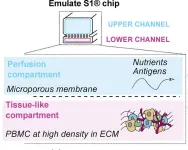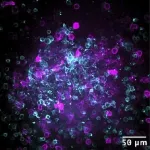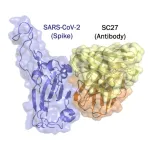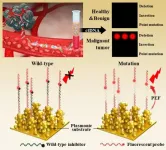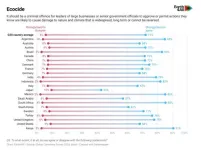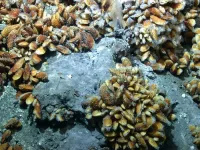(Press-News.org) Researchers at the Institut Pasteur in France have developed artificial “lymphoid organ-chips” that recreate much of the human immune system’s response to booster vaccines. The technology, described in an article to be published September 6 in the Journal of Experimental Medicine (JEM), could potentially be used to evaluate the likely effectiveness of new protein and mRNA-based booster vaccines for COVID-19 and other infectious diseases.
The rapid mutation and evolution of SARS-CoV-2 and other viruses means that booster vaccines must be developed equally rapidly to provide protection from emerging viral strains. The effectiveness of updated vaccines can be hard to predict, however. The recent bivalent mRNA COVID vaccine, for example, turned out to be no more effective than the original monovalent vaccine against the emerging Omicron variant that it was designed to combat. One reason for this unpredictability is that the laboratory animals used to test new vaccines have slightly different immune systems than humans. Another reason is that humans can vary greatly in their response to a vaccine, depending, in part, on their individual history of infection and vaccination.
“The COVID-19 pandemic has emphasized the need for preclinical systems that enable a rapid evaluation of immune responses elicited by candidate booster vaccines, particularly within specific cohorts of high-risk individuals,” says Lisa Chakrabarti, a group leader within the Virus and Immunity Unit at the Institut Pasteur.
The immune system’s response to a vaccine is coordinated in secondary lymphoid organs, such as the lymph nodes and spleen, where various types of immune cell gather and interact with each other to spur the development of specific antibody-producing B cells. Chakrabarti’s team, led by postdoctoral researcher Raphaël Jeger-Madiot, created an artificial version of these organs by embedding small samples of human blood cells in 3D collagen matrices on tiny microfluidic chips. These lymphoid organ-chips can then be exposed to viral proteins and RNAs used in vaccines.
"The continuous perfusion of microfluidic chips with antigen and nutrients greatly facilitates the growth and activation of immune cells" explains Samy Gobaa, who leads the Pasteur Microfluidics platform and collaborated on the study.
When the researchers exposed the lymphoid organ-chips to the SARS-CoV-2 spike protein, B cells and T cells within the blood samples became active and clustered together, just as they do in real lymphoid organs. The B cells then matured and began to produce antibodies capable of neutralizing the SARS-CoV-2 virus.
The presence of multiple other immune cell types in the human blood samples allowed the lymphoid organ-chips to respond to mRNA-based COVID vaccines as well. Similar to the real world results, the bivalent vaccine was, in general, no more effective at inducing Omicron-neutralizing antibodies than the monovalent vaccine.
By comparing lymphoid organ-chips created with blood samples from different donors, however, Chakrabarti and colleagues were able to observe a variety of different responses: chips created from some donors responded equally well to either type of mRNA booster, while chips created from other donors showed a stronger response for either the monovalent or bivalent vaccine.
“This illustrates the diversity of immunological histories in the population, and the resulting individual variability in vaccine responses,” says Raphaël Jeger-Madiot.
“In the face of such variability, the lymphoid organ-chip could provide a useful preclinical system to evaluate the capacity of candidate vaccines to induce neutralizing antibodies against current SARS-CoV-2 variants in diverse human populations. This should be an asset in the face of a rapidly evolving SARS-CoV-2 pandemic,” adds Chakrabarti.
Jeger-Madiot et al. 2024. J. Exp. Med. https://rupress.org/jem/article-lookup/doi/10.1084/jem.20240289?PR
# # #
About Journal of Experimental Medicine
Journal of Experimental Medicine (JEM) publishes peer-reviewed research on immunology, cancer biology, stem cell biology, microbial pathogenesis, vascular biology, and neurobiology. All editorial decisions on research manuscripts are made through collaborative consultation between professional scientific editors and the academic editorial board. Established in 1896, JEM is published by Rockefeller University Press, a department of The Rockefeller University in New York. For more information, visit jem.org.
Visit our Newsroom, and sign up for a weekly preview of articles to be published. Embargoed media alerts are for journalists only.
Follow JEM on Twitter at @JExpMed and @RockUPress.
END
Artificial lymphoid organs could help predict efficacy of booster vaccines
2024-09-06
ELSE PRESS RELEASES FROM THIS DATE:
One antibody to neutralize them all?
2024-09-06
SAN ANTONIO -- A monoclonal antibody appears effective at neutralizing the numerous variants of SARS-CoV-2, as well as related viruses in animals that could pose a threat if they were to begin spreading in people. The antibody, called SC27, was recently described in Cell Reports Medicine.
The finding opens the possibility of broader, more effective treatments to work against current and future COVID variants.
Monoclonal antibody SC27 was identified, developed and provisionally patented by a team of researchers led ...
How context-specific factors control gene activity
2024-09-06
Every cell in our body contains the same DNA, yet liver cells are different from brain cells, and skin cells differ from muscle cells. What determines these differences? It all comes down to gene regulation; essentially how and when genes are turned on and off to meet the cell’s demands. But gene regulation is quite complex, especially because it is itself regulated by other parts of DNA.
Gene regulators: Enhancers, transcription factors
There are two important components that control gene regulation: the first are enhancers, which are short bits of DNA that increase the likelihood that a ...
Detects cancer genes with ultra-high sensitivity!
2024-09-06
Dr. Min-young Lee and Dr. Sung-gyu Park of the Advanced Bio and Healthcare Materials Research Division at KIMS have developed a technology that can detect cancer mutant genes in blood with the world's highest sensitivity of 0.000000001% based on plasmonic nanomaterials for optical signal amplification. The team tested blood samples from lung cancer patients (stages 1-4) and healthy individuals for EGFR mutations and achieved a diagnostic accuracy of 96%.
Previously utilized genetic analysis technologies had low analytical sensitivity to detect mutated genes compared to normal genes, making it difficult to accurately diagnose early-stage cancer patients. ...
Study suggests US droughts, rainy extremes becoming more severe
2024-09-06
COLUMBUS, Ohio – Severe drought in the American Southwest and Mexico and more severe wet years in the Northeast are the modern norm in North America, according to new research – and the analysis suggests these seasonal patterns will be more extreme in the future.
The middle of the United States, meanwhile, can expect bigger swings between wetter wet periods – high-rainfall years known as pluvials – and drier summers through the rest of this century, the study predicts.
Researchers at The Ohio State University say the findings, based on modern precipitation data, historical tree rings and climate models ...
Quality assurance in histopathology laboratories
2024-09-06
The medical field is inherently susceptible to errors, with laboratory tests being no exception. In histopathology laboratories, where tests are considered the gold standard for diagnosing various diseases, errors can significantly impact patient outcomes. Quality Control (QC) and Quality Assurance (QA) programs are essential in minimizing these errors and ensuring the generation of accurate and reliable reports. The complex, multistep nature of histopathology work, combined with the subjective nature of many diagnostic interpretations, ...
Causing environmental damage should be a criminal offense, say 72% of people surveyed in G20 countries
2024-09-06
Nearly three out of four people (72%) surveyed across 18 G20 countries1 support making it a criminal offence for government or leaders of large businesses to approve or permit actions which cause serious damage to nature and climate, finds major new research. This finding is part of the latest Global Commons Survey 2024, conducted by Ipsos UK and commissioned by Earth4All and the Global Commons Alliance (GCA).
The research follows recent landmark legislative changes, including in Belgium where ecocide was recognised as a federal crime earlier this year. Related laws ...
Natural probiotic discovered in UK newborns microbiomes
2024-09-06
Newborn babies have one of three pioneer bacteria in their gut shortly after birth, one of which could be used to develop new personalised infant therapeutic probiotics, researchers show.
In the largest study of UK baby microbiomes to date, researchers from the Wellcome Sanger Institute, University College London (UCL), and the University of Birmingham, used whole genome sequencing to analyse stool samples from 1,288 healthy infants, all under one month old from the UK Baby Biome Study1.
This research, published today (6 September) ...
Hijacking the command center of the cell: nuclear parasites in deep-sea mussels
2024-09-06
Most animals live in intimate relationships with bacteria. Some of these bacteria live inside the cells of their hosts, but only very few are able to live inside cell organelles (structures inside the cell, like organs in the body). One group of bacteria have figured out how to colonize the nuclei of their hosts, a remarkable feat given that the nucleus is the control center of the cell.
To date, nothing is known about the molecular and cellular processes that these intranuclear bacteria use to infect and reproduce in animal hosts. A group of scientists from the Max Planck Institute for Marine Microbiology in Bremen, Germany, now presents the first in-depth analysis ...
The heat generated by the tissues of some plants has played a crucial role in the evolutionary history of insect pollination
2024-09-06
Thermogenesis is a process by which organisms generate internal heat. Although it is usually associated with animals, some plants have also developed this ability. This metabolic process allows certain parts of the plant, such as flowers and inflorescences, to raise their temperature above that of the surrounding environment. Today, these plants, which include cycads and some angiosperms (flowering plants), rely on insects for pollination. The heat they generate helps volatilize and disperse floral fragrances and other chemical compounds that attract insects such as beetles, flies, and ...
Global experts help nanomedicines DELIVER on healthcare promise
2024-09-06
They’re tiny drug-delivery systems 1000 times smaller than a human hair, but while nanomedicines have long been hailed as the future for treating debilitating and life-threatening diseases, their journey from lab to patient has many challenges.
Now, new findings from a global team of expert scientists in academia and industry has generated world-first research quality standards that will help slash costs and reduce the time it takes to develop advanced nanomedicine treatments and make them available for patients.
Published in Nature Nanotechnology today, and led by the University of South Australia’s Dr Paul Joyce and the University ...
